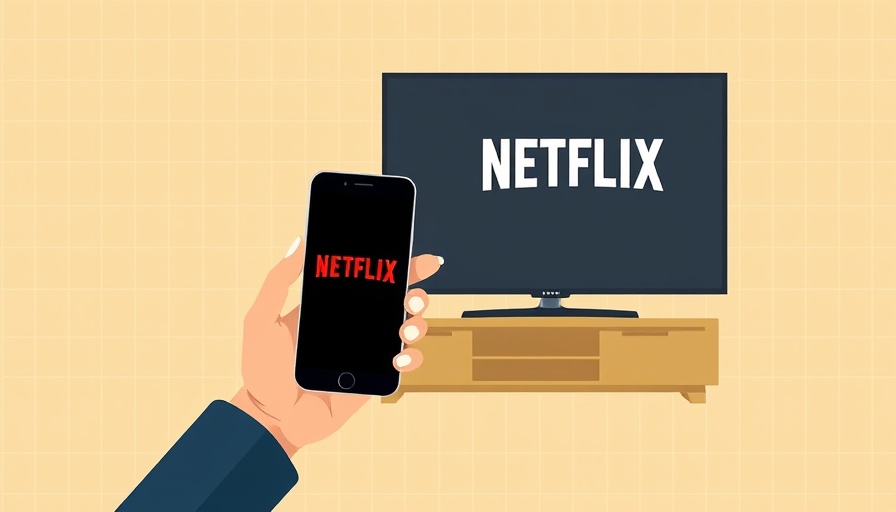
Unlocking Your Smart TV Potential
In a world where technology continually evolves, the intersection of our devices often presents challenges that, when mastered, can enhance our digital experiences significantly. If you've ever found yourself watching a thrilling movie on your phone but wishing it was on the bigger screen, you're not alone! Consider the experience of watching "Doctor Strange in the Multiverse of Madness" on a Samsung phone while yearning for the vibrant visuals of a 50-inch Samsung Smart TV. But connecting these devices didn’t just involve basic navigation; it transformed into a mini-adventure in tech literacy.
Navigating the Connectivity Maze
The author’s initial attempts to cast their phone’s screen to the TV illustrate a common predicament—many users are unaware of the tools at their disposal. Despite the availability of the SmartThings app, crucial details on how to effectively use it remain sparse. Fumbling through tabs and device categories may have initially overwhelmed them, but persistence led towards a pivotal moment. The turning point came with the discovery of the 'Smart View' feature—often overlooked, yet essential for bypassing complicated setups. A simple swipe reveals connections to nearby devices, and with a quick PIN entry, users are now ready to enjoy their favorite shows on a grand scale.
Cross-Platform Compatibility
In an era when Apple and Samsung devices often play tug-of-war in the tech community, the ease with which an iPad connected to the Samsung Smart TV offers an encouraging contrast. Much like the Android experience, a quick swipe reveals AirPlay capabilities, effortlessly linking devices. This compatibility bridges gaps and demonstrates that regardless of brand loyalties, shared experiences are vital, enhancing entertainment options across diverse ecosystems.
Why This Matters for Tech Entrepreneurs in Africa
As African businesses increasingly embrace digital transformation, understanding the utility of such technology becomes paramount. The ability to connect various devices seamlessly paves the way for innovation, notably in sectors like fintech and AI. Entrepreneurs seeking to harness emerging trends should prioritize the user experience in their products and services to encourage broader adoption of new technologies across the continent. Investment in educational resources that demystify technology will also facilitate smarter, more effective consumer interactions.
Actionable Insights for Future Connectivity
Understanding the connectivity between devices can influence how businesses leverage technology in everyday interactions. For professionals in sectors like automation and blockchain, grasping these fundamental tech relationships can lead to better product integration, resulting in more seamless workflows, improved productivity, and greater customer satisfaction. Moreover, embracing such innovations is key to addressing broader themes in digital governance and e-governance frameworks within Africa—a move that underscores a commitment to innovation in Africa's burgeoning tech landscape.
So the next time you find yourself contemplatively looking at your lonely Smart TV while engrossed in a captivating series on your phone, remember the potential waiting to be unlocked with a few taps and swipes. By embracing connectivity, both personal and professional lives can take on a new dimension of entertainment and productivity.
 Add Row
Add Row  Add
Add 


Write A Comment